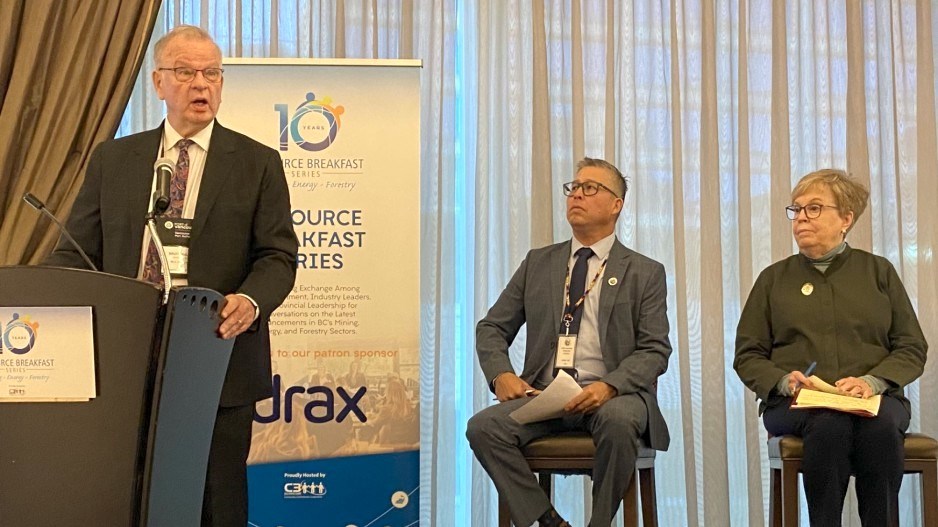B.C. Forests Minister Bruce Ralston is off to Japan later this week with a delegation for forest industry and First Nation leaders on a trade mission to promote B.C. wood products.
Japan is not only B.C.’s third largest export market, it’s also one of its oldest.
“We’re celebrating, this year, the 100th anniversary of sales of lumber from British Columbia to Japan,” Ralson told BIV. “So it’s a very established market, but it is shifting a bit.”
Because of Japan’s aging population, fewer new family homes are being built, so B.C. lumber producers are starting to focus more on Japan’s institutional and non-residential construction market.
“Also, for some of our mass timber products as well, there’s huge opportunities there,” Ralston said. “It’s not a big component of our sales, but there’s room for growth there.”
Japan is the third biggest export market for B.C. commodities. The three most important B.C. commodities sold to Japan in 2022 were coal ($2.7 billion), copper concentrate ($1.3 billion) and wood products ($1.4 billion).
According to BC Stats trade and export data, lumber accounted for $744 million in sales in 2022, logs $220 million, pulp $218 million, “other” products $246 million.
That “other” category would largely be wood pellets, which is used in Japan as a carbon-neutral substitute for coal.
"Japan is a long-standing, high-value market for B.C. forest products with common commitments to sustainable forest practices and building healthy, resilient communities using Canadian wood products,” said Kevin Pankratz, senior vice-president of sales and marketing for Canfor. “It's important for us to be there and to show we are committed to supplying sustainably harvested forest products into the future."
The five-day forestry trade mission starts on Sunday, and will include a tour of a new 11-storey mass-timber building in Yokohoma, and a visit to a Tokyo showroom of Mihashi, the largest moulding supplier in Japan, which uses products from Timber Tile, a forestry company owned by Huu-ay-aht First Nation.
"First Nations in B.C. have established significant forestry partnerships in business and governance, not only within Canada but also on a global scale,” said delegate Terry Teegee, regional chief of the BC Assembly of First Nations. “The association with the Japanese forestry market presents numerous valuable prospects for First Nation forest products and knowledge exchange.”





